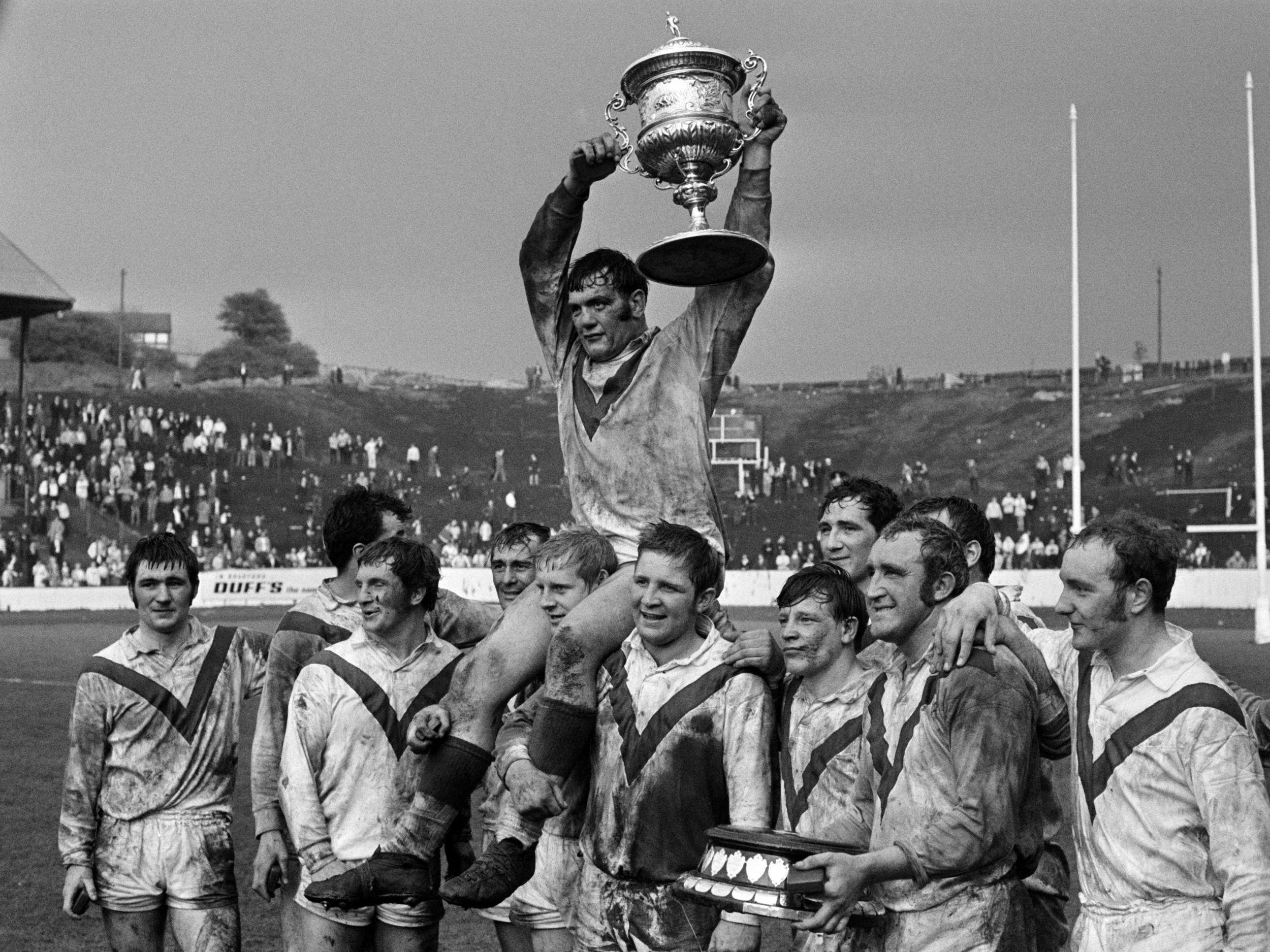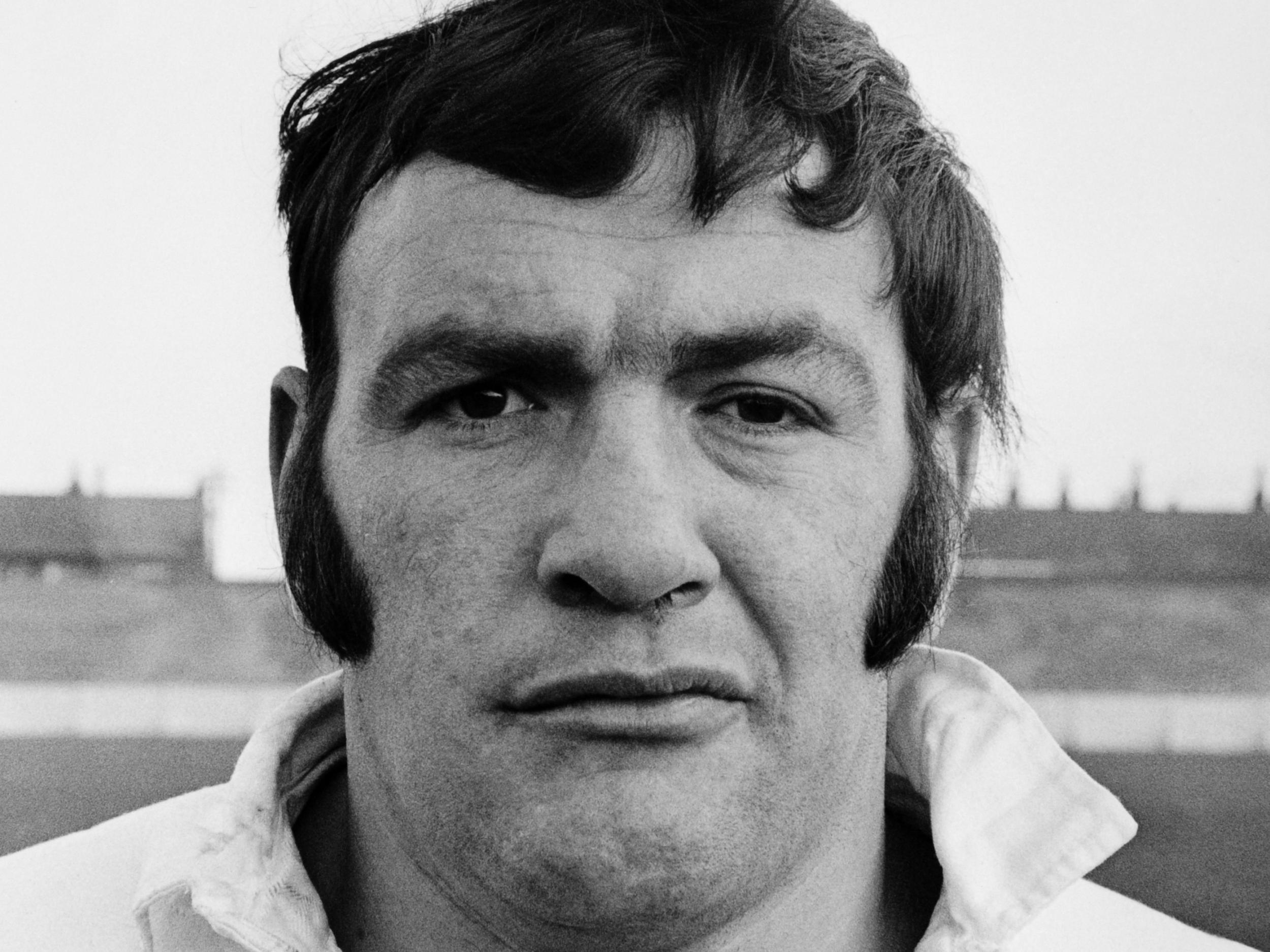Cliff Watson: Rugby league prop who played for Great Britain and St Helens
A fearless and fearsome powerhouse on the pitch, he once said, ‘There’s only one way to beat the Aussies – get in there and thump ’em’

Your support helps us to tell the story
From reproductive rights to climate change to Big Tech, The Independent is on the ground when the story is developing. Whether it's investigating the financials of Elon Musk's pro-Trump PAC or producing our latest documentary, 'The A Word', which shines a light on the American women fighting for reproductive rights, we know how important it is to parse out the facts from the messaging.
At such a critical moment in US history, we need reporters on the ground. Your donation allows us to keep sending journalists to speak to both sides of the story.
The Independent is trusted by Americans across the entire political spectrum. And unlike many other quality news outlets, we choose not to lock Americans out of our reporting and analysis with paywalls. We believe quality journalism should be available to everyone, paid for by those who can afford it.
Your support makes all the difference.Twelve broken noses, five broken arms, four broken ribs, two broken jaws: Cliff Watson’s decade and a half as one of rugby league’s greatest prop forwards could be measured like a nightmarish day in A&E.
Setting aside the injuries, Watson’s career might be better encapsulated by mentioning his 11 years in St Helens’ front row, 30 caps for Great Britain, whom he captained in the 1968 World Cup, one Championship triumph, two Challenge Cup winner’s medals and six in the Lancashire County Cup. There was also an eventful coda to his career in Australia, where he eventually went to live.
Watson, who has died in Sydney aged 78 after a protracted struggle against cancer, was born in London’s East End but moved to his father’s birthplace in the Midlands after the family home was destroyed by the Luftwaffe. When he was an apprentice toolmaker in Tipton, playing the then-amateur code of rugby union for Dudley Kingswinford, a workmate showed him an advert in the horse-racing newspaper the Sporting Chronicle. St Helens were seeking “top-class rugby union forwards”, a description for which breaking into the Worcestershire and Herefordshire combined county side’s second row at 19 did not strictly qualify him.

Nevertheless, he was taken on, initially on a six-match trial basis, for which he earned £750. In 1961, just 21 and playing only his 12th game in the semi-professional ranks, he preserved Saints’ Challenge Cup final victory over Wigan with a try-saving tackle on Billy Boston before 95,000 spectators at Wembley.
Within two years, Watson, whose jobs included nightclub bouncer and brewery drayman, was playing for Great Britain. Among the 13-a-side game’s forwards only a handful, such as Vince Karalius and Derek Turner, matched his impact. It took several men to halt his charging runs; he possessed what one observer hailed as a “jack-hammer hand-off”; and he was almost unrivalled in terms of ball-release under pressure. He was also uncompromising to a fault; against Australia at Headingley in 1963 he was sent off for what TV commentator Eddie Waring euphemistically termed “a knee tackle”.
His second Challenge Cup winner’s medal came in 1966, with Wigan again defeated before almost 99,000 fans. He skippered England against Wales in 1968 and led the unsuccessful GB team in the World Cup in Australia that year, continuing to represent the Lions until 1971.
The same year he left St Helens after 373 appearances and 57 tries, heading Down Under with scrum-half Tommy Bishop to join Cronulla-Sutherland Sharks. The pair led them to their first Grand Final in 1973, a bitter, often violent match which the Sharks lost 10-7 to Manly Warringah Sea Eagles at Sydney Cricket Ground.
Watson is the only GB player to have been sent off twice against Australia, but he settled there with his wife Barbara and three daughters, going on to coach Wollongong.
Yet he remained the archetypal Pom, telling one ex-players’ reunion: “There’s only one way to beat the Aussies – get in there and thump ’em. Let them run at you and they’ll annihilate you. But if you belt ’em, they don’t like it.”
Clifford H Watson, rugby league player and coach, born 26 April 1940, died 2 May 2018
Join our commenting forum
Join thought-provoking conversations, follow other Independent readers and see their replies
Comments